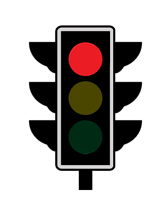 ● What instruction does this give motorists?
● What instruction does this give motorists?
● What incentive is there for a motorist to obey this instruction?
● Is there anything to stop a driver going through a red light?
Most societies have some kind of ‘code’ for behaviour and conduct, which the majority of people within that society will follow. In some cases these ‘codes’ are written down in the form of rules and laws; in other cases, they are simply shared ideas about how to behave towards others.
Here is an extract from a ‘code’ that exists in the UK, The Highway Code:
6: Motorways. You MUST NOT walk on motorways or slip roads except in an emergency (see Rule 249) Laws RTRA sect 17, MT(E&W)R 1982 as amended & MT(S)R regs 2 &13
Discuss:
● Why should you follow these instructions?
● What might the consequences be if you don’t follow them?
● Who is this ‘code’ trying to protect?


